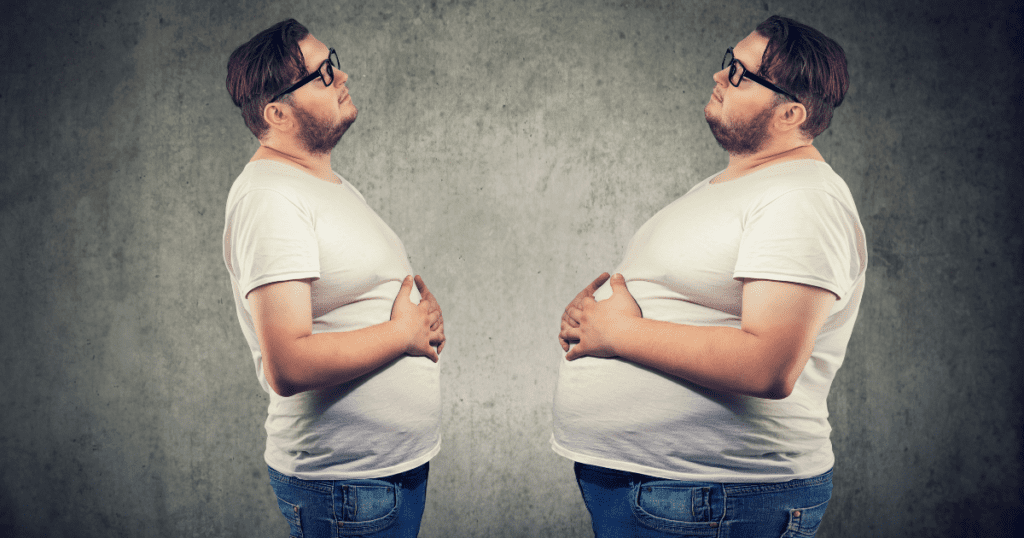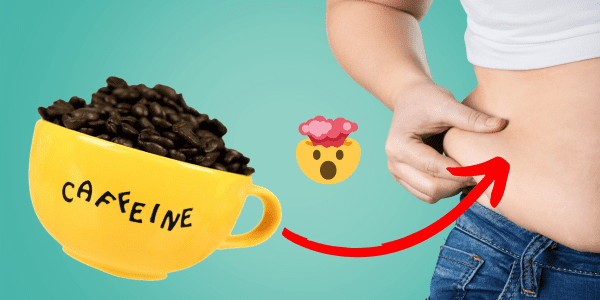Caffeine and Weight Gain: A Shocking Secret You Never Knew
I hate to be the bearer of bad news but could everything you were left to believe about caffeine and fat loss be wrong? Could there be a link between caffeine and weight gain?
First and foremost, I’m a caffeine junkie. And when I say caffeine junkie, I mean I could take upwards of a gram of caffeine per day as if it were nothing. No shakes, no jitters, no crash — nothing. But the more I dug into fat loss, I kept finding bits and pieces of research that showed a connection between caffeine and weight gain.
Now, that may come as a surprise, as there’s tons of research out there touting all the benefits caffeine has in helping people lose weight and body fat. But at what point does your caffeine use turn abusive and start you going down a path in the wrong direction?
Related Article: Skip the Caffeine — Eating Clean Provides Natural Energy
I went down the rabbit hole, and what I found may surprise many of you (especially if you’re a fan of slamming energy drinks). What I discovered may cause you to rethink your caffeine use and even start understanding why you’re finding it difficult to lose weight.
In this article, we will dive deeper into caffeine and weight gain, how they are connected, and what the research says.

Disclosure: It is recommended that you speak with your doctor before engaging in any exercise, nutrition, or supplement program. If you use caffeine, speak with your doctor to determine what dosage you should stay within and what your max should be for the day.
Caffeine and Weight Gain – Can It Stall Your Progress?
Don’t shoot the messenger, I’m just here to provide you with the facts, as I always do. This topic isn’t something I’d ever expected to do an article on as I have a deep love for my caffeine, everything from coffee to energy drinks and everything in between. But the fact of the matter is the more research I do, I keep finding a link between caffeine and weight gain.
If you look at energy drinks, fat burners, and similar supplements out on the market, the one commonality they all share is caffeine. We have been so used to seeing it in our pre-workouts, energy products, and our favorite brands of coffee that we have almost become immune to the thought of life without caffeine in it. But caffeine and weight gain is an actual concern as you reach a higher and higher caffeine intake.
Around 74% of Americans drink coffee daily. That’s a huge statistic. And according to Statista, 32% of Americans aged 18-29 consume energy drinks, and 34% of those 30-49 share the same love for these high-caffeine beverages. With so many people consuming beverages loaded with caffeine, could this contribute to the obesity epidemic in the United States? Should caffeine and weight gain get researched further?
How are Caffeine and Weight Gain Linked?
Some of you may still think I’m joking, and there’s some sort of punchline you’re waiting to be hit with. But unfortunately, there is no punchline, and as I’m about to show you, there seems to be a correlation between caffeine and weight gain.
Related Article: Is Caffeine Overdose Really a Thing?
If you are like most people who were surveyed and tossed into published research, you’re probably consuming, on average, around 300 mg of caffeine daily.

The issue with consuming high amounts of caffeine, as the research shows, is that it can increase blood sugar levels and can keep them elevated. To add insult to injury, when you constantly increase blood sugar levels in your body, it can not only raise insulin but also drive up cortisol levels. This connects the dots between caffeine and weight gain.
For those who are unfamiliar with this particular stress hormone, cortisol can cause you to pack on the pounds. When cortisol levels are elevated, your body more easily stores body fat. To make matters worse, when cortisol levels are high, it can cause the release of ghrelin, a hunger hormone. This combination causes you to never seem to feel full, leading to overeating and putting yourself into a caloric surplus that leads to weight gain.
Circling back to the link between caffeine and weight gain as it relates to insulin, when you consume high amounts of caffeine regularly, and insulin levels remain elevated, it can make your cells less sensitive (causing a decrease in insulin sensitivity), potentially leading to insulin resistance. This is the opposite of what you want to happen if weight loss is your goal, as you want your cells to be insulin sensitive.

With all this being said, does it mean the link between caffeine and weight gain is absolutely certain for everyone? No. Our bodies all react differently to caffeine as health, metabolism, weight, etc., all play a role in caffeine’s effects. Someone with a slower metabolism may experience more of the symptoms mentioned above as they tend to hold onto caffeine in their system longer than someone would who has a fast metabolism.
Related Article: Does Caffeine No Longer Energize You? Here’s Why…
All things taken into account, caffeine and weight gain is a real concern that people should be thinking about. If you find you’re not easily losing weight from your efforts, you may want to look at your caffeine intake. Between coffee, energy drinks, pre-workouts, and soda, your caffeine intake may be through the roof. This combination, when blood sugar levels remain elevated, can be the reason you’re finding added body fat building up around your midsection.
How Much Caffeine is TOO MUCH Caffeine?
The hardest pill to swallow with caffeine and weight gain is that there are some great benefits and studies that back up the use of caffeine and coffee for weight loss and health benefits. What you need to do is find that balance where you’re not overdoing your intake.
Research has found that adults should consume 400 mg of caffeine or less daily. To put things into perspective, a typical energy drink contains anywhere from 200-300 mg of caffeine per can. Just from that one source, you’re already topping the higher end of your daily intake, and that’s not even counting your pre-workout (which will also typically have 200-400 mg of caffeine per serving), any coffee you consume throughout the day, and soda or tea.
While the number to stay under tends to be 400 mg per day, I would look at this from a different lens. Not only as it relates to caffeine and weight gain, your caffeine intake should be managed. For the majority of people, their caffeine use is part of a routine and does not reflect an actual need for consumption (for example, pre-workout). For them, they are just used to waking up to a cup of coffee and drinking their favorite energy drink in the afternoon or also in the morning.
Your goal should be to lower your caffeine consumption and leverage the times you actually need and use this stimulant. Don’t use it simply because it’s become routine, or you may suffer from the link between caffeine and weight gain.


*Disclosure: This article may contain affiliate links or ads, which means we earn a small commission at no extra cost to you if you make a purchase through these links. These commissions help support the operation and maintenance of our website, allowing us to continue producing free valuable content. Your support is genuinely appreciated, whether you choose to use our links or not. Thank you for being a part of our community and enjoying our content.
PLEASE CONSIDER SHARING THIS ON YOUR SOCIAL MEDIA TO HELP OTHERS LEARN MORE ABOUT THIS TOPIC. SIMPLY CLICK BELOW!

